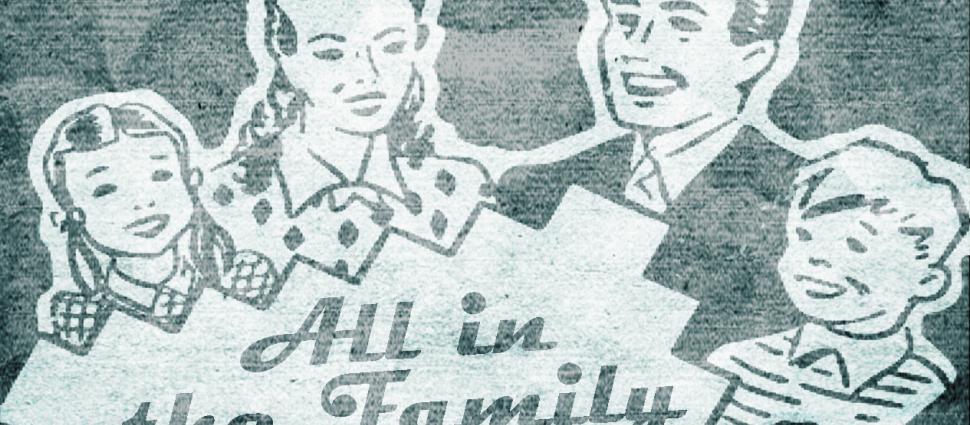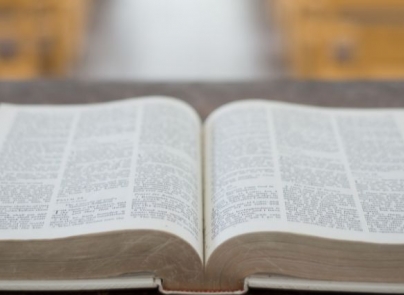All in the Family

One area in which the Westminster Standards are somewhat unique from other Reformed documents is their inclusion of the doctrine of Adoption. Adoption stands as its own chapter in the Confession (Ch. 12). By giving it a full chapter the WCF emphasizes what is routinely an under-appreciated doctrine in other Reformed works.
I remember being struck by the beauty of this doctrine the very first time I read through the Confession of Faith. That God would take an orphan and put his name upon the orphan, give him access to the throne of grace, love him as his own child, and make him an heir of heaven astounded me. Who would do that? The demonstration of grace in this doctrine is captivating and breathtaking. It made me want learn more about the theological doctrine of adoption. And Thomas Watson’s chapter on adoption in his book A Body of Divinity has been extreemly helpful.
Before Watson begins to define what Adoption is, he makes a few more preliminary remarks. He notes that adoption is not based on birth. It does not matter the country in which one was born. It does not matter what sex one is born. Both male and female are made sons and daughters. Watson notes that though some civil rights were denied women by nature of their sex, “of spiritual privileges, females are as capable as males."1 Finally, this highlights that adoption is purely of God’s grace. It is “according to his good pleasure” (Eph 1:5). None have a right to this gift. All are strangers and aliens. The orphan has no right to demand adoption.
So what is Adoption? Watson defines it as “taking a stranger into the relation of a son and heir."2 The orphan is given the name of the adoptive father, joining and being identified with that family. But God’s adoption of sinners far exceeds the civil adoption of man.
When a man adopts another for his son and heir, he may put his name upon him, but he cannot put his disposition into him; if he be of a morose rugged nature, he cannot alter it; but whom God adopts he sanctifies; he not only gives a new name but a new nature (2 Pet 1:4). He turns the wolf into a lamb; he makes the heart humble and gracious; he works such a change as if another soul dwelt in the same body.3
The gift of adoption comes through the instrument of faith (Gal 3:26). Before faith we were illegitimate sons with no relation to God. Before faith we could rightly call God our Judge but we could not call him our Father. But adoption changes that. By God’s free grace in Christ, we who were orphans are given the right and privilege to call God “Father” (Gal 4:6). After defining what adoption is, Watson this lays out four uses for this doctrine:
Use #1 We see the amazing love of God in making us his sons
Watson gives six reasons why we should see the amazing love of God in making us his sons:
First, God had no need for another son, for he already had a Son of his own. “We needed a Father, but he did not need sons.”4 Second, we were unworthy of this great grace. Third, God went to great expanse in adopting us. Our adoption was purchased at a dear rate; for when God was about to make us sons and heirs, he could not seal the deed but by the blood of his own Son. Here is the wonder of God’s love in adopting us, that he should be at all this expense to accomplish it.5 Fourth, we were God’s enemies. God pardoned his enemies and them his heirs. Fifth, God brings in a great multitude of children into his family. Men adopt ususally but one heir, but God is resolved to increase his family, he brings many sons to glory. God’s adopting millions is the wonder of love. Had but one been adopted, all of us might have despaired; but he brings many sons to glory, which opens a door of hope to us.6 Sixth, God conferred a great honor on us.
Use #2 We are able to determine our status as adopted children of God.
There are two ultimate destinations in life. Either you are a son of God or you an heir of hell. The orphan who is adopted takes on the name of his father and receives all the rights and privileges of being a child of the Father (John 1:12). The adopted son knows his status as a child of the Father in two ways. The first sign of adoption is obedience. A son obeys his father. Now, no child obeys his father perfectly, but Watson advises that his obedience is “evangelical.” By this he means that the son loves the law and when he disobeys, “he looks to Christ’s blood to supply his defects.”7 The second sign of adoption is to love to be in the Father’s presence. Through the means of grace God has given his Church the means to be near to him. In his Word we hear his voice. In prayer we speak to God as our Father. In the Sacraments his presence is signified and sealed in us.
Such as disregard [these] ordinances are not God’s children, because they care not to be in God’s presence. “Cain went out from the presence of the Lord” (Gen 4:16). Not that he could go out of God’s sight, but the meaning is, “Cain went out from the church and the people of God, where the Lord gave visible tokens of his presence.”[8]
The third sign of adoption is the guidance of the Holy Spirit. The Spirit constrains and checks the rebellion of our flesh so that we go in the right way. And the fourth sign of adoption is we have a love of all of God’s children. “Love the brotherhood” (1 Pet 2:17). “If we are adopted, we love the good we see in God’s children: we admire their graces, we pass by their imprudencies. If we cannot love them because they have some failing, how do we think God can love us?"
Use #3 We can rejoice in the benefits of adoption.
Watson notes that God’s adopted children receive a number of gracious benefits and freedoms. The first is that the sons of God are free from the “hurt of everything.” Watson warns that you may be hit, but those blows will not ultimately hurt you. “When the dragon has poisoned the water, the unicorn with his horn extracts and draws out the poison; so Jesus Christ has drawn out the poison of every affliction, that is cannot injure the saints.” And if the hurt is removed from affliction, then those trials only serve to purify the adopted son (Heb 12:8-10). The second benefit is that the son of God are recipients of all the promises of God. In our dark, God promises to be the sun. In our hurt, he is a healing balm. In our temptation, he is a refuge. In our battle, he is a victorious king.
Use #4 We extol and magnify the glory of God.
Adoption is a free gift. In adoption, the child being adopted does not barter, negotiate, or sell himself to the adopting parents. Adoption is a free gift to the adopted, but it is a costly gift for the adopting parents. The grace that God has exhibited in adoption is tremendous.
“To make us thankful, consider, in civil adoption there is some worth and excellence in the person to be adopted; but there is no worth in us, neither beauty, nor parentage, nor virtue; nothing in us to move God to bestow the prerogative of sonship upon us. We have enough in us to move God to correct us, but nothing to move him to adopt us, therefore exalt free grace…bless him with you praises who has blessed you in making you his sons and daughters."11
God’s grace is extolled and magnified in us when we consider that we have not earned or merited his mercy, yet through Christ God has adopted us.
______________________________
1. Thomas Watson, A Body of Divinity: Contained in Sermons upon the Westminster Assembley’s Catechism (Edinburgh: Banner of Truth Trust, 1983), 232.
2. Ibid.
3. Ibid., 233.
4. Ibid.,, 235.
5. Ibid.
6. Ibid.
7. Ibid., 238.
8. Ibid.
9. Ibid., 239.
10. Ibid.
11. Ibid., 240.
Donny Friederichsen is a graduate of Reformed Theological Seminary, Orlando (MDiv, ’11) and The University of Tennessee (B.A., ’99). He and his wife, Kim, have four children. Donny is a native of Chattanooga, TN. He served with Campus Crusade for Christ in Belarus, Russia, and at the University of Kentucky before becoming a pastor. He is currently the pastor Covenant Presbyterian Church (PCA) in Short Hills, NJ, a suburb of New York City. You can follow him on Twitter @dfriederichsen.





